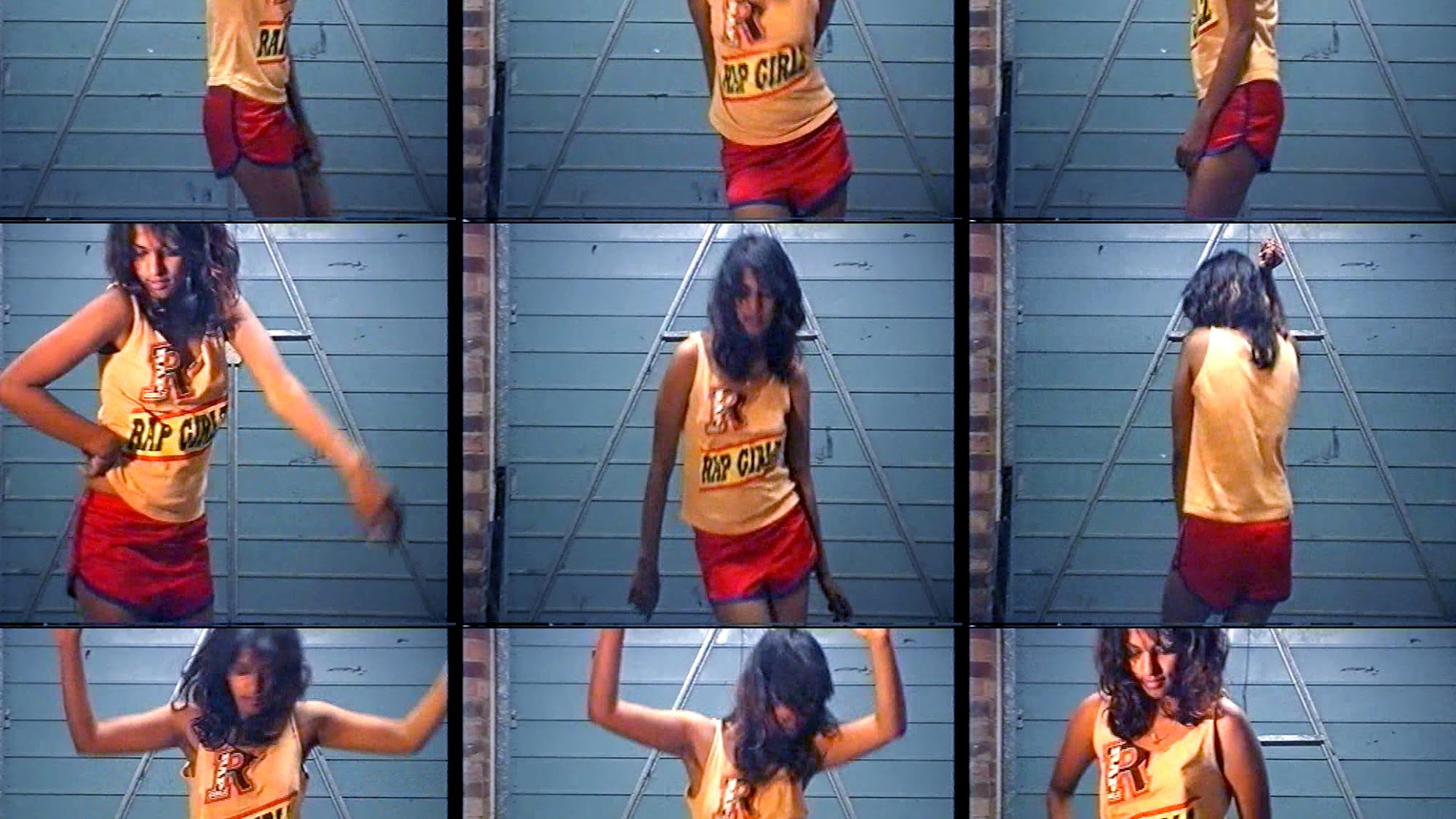A compelling and supportive portrait of one of the most controversial and frequently misunderstood recording artists in the world, the documentary Matangi/Maya/M.I.A. chronicles the life and times of a woman who refuses to compromise her beliefs for the sake of money and comfort. Sri Lankan born and British raised singer and rapper Maya Arulpragasam, otherwise known by her stage name M.I.A., has used her best selling records as a platform to help her people, generate interest in their cause, and express her inner rage and frustration towards racists and sexists around the world. One listen to any of her genre mashing albums gives impeccable insight into any number of the issues Maya holds close to her heart and mind, but Steve Loveridge’s Matangi/Maya/M.I.A. provides necessary context and education that most who write her off as a political provocateur choose to ignore in favour of stereotyping.
The daughter of a Tamil resistance leader, Maya, along with her mother and siblings, fled the ethnically charged warring in Sri Lanka and made their way to London as refugees in the mid-1980s. Initially interested in a career as a filmmaker and inspired by seeing plenty of people with microphones and high profile platforms who would say nothing of substance, Maya turned to recording and rapping, constructing songs that were based on experiences, people she knew, and life or death struggles. Her first album sold 100,000 copies in a remarkably short period of time for something that was made predominantly with little more than a $300 keyboard. She’d gain critical and commercial acclaim at a rapid rate with almost no radio airplay before her breakthrough crossover smash “Paper Planes” started getting picked up for western marketing campaigns (which is hilarious since that track with the catchy boom-boom-boom-boom-ka-ching hook is a spoof on immigration fears). With that higher profile came increased scrutiny and backlash from many media outlets seeking to brand the Tamil Tigers as terrorists and not a resistance movement. Never wavering in her beliefs and causes, M.I.A. doubled down on her advocacy efforts despite obvious stresses taking their toll.
Loveridge is basically a hired gun to assemble a wide range of footage from across M.I.A.’s career into a compact, but comprehensive final package. He does a fine job, but Matangi/Maya/M.I.A. remains firmly and unequivocally Arulpragasam’s story to tell in her own words. Loveridge actually went to school with Maya, who initially wanted to be a documentarian. A majority of the most interesting footage contained within Matangi/Maya/M.I.A. was shot by the subject herself in moments both monumental and intimate. It’s a film that the singer-songwriter-director-activist could have made on her own, but Loveridge functions nicely as a kindred spirit who can help guide the assembly of footage with a degree of editorial objectivity. Loveridge might have a directorial credit here, but make no mistake: this is M.I.A.’s film, and as such most of it won’t be critical of some of Arulpragasam’s more controversial statements and career choices.

But when a film is built around a subject as captivating, inspiring, and well spoken as M.I.A., external context cluttering up the artist’s overarching messages isn’t welcome or necessary. The most appealing aspect of Matangi/Maya/M.I.A. is watching an artist explain their work and advocacy in their own words, something that’s important to someone who has had obvious hatchet jobs written about them (one of which was done for The New York Times and was essentially caught on camera) and threats made against them. Matangi/Maya/M.I.A. follows Arulpragasam’s growth from a young woman searching for a sense of self and belonging into a self-assured, successful artist and crusader for her people. With concrete vision and DIY roots, all of M.I.A.’s successes and failures were of her own creation. Although she looked up to the causes her father represented, Matangi/Maya/M.I.A. is more of an examination of a strong, empowered, largely self made woman.
The film dives deeply into M.I.A.’s questioning of her own career, various ways that select media outlets have misquited her to fit their own agendas, and that time she flipped off a camera during the Super Bowl halftime show, but the most revealing footage remains something that Maya shot herself. A good portion of the film cuts back at various points to something she filmed while revisiting Sri Lanka in 2001. Through her own eyes and filmmaking, we see where the seeds of M.I.A’s work were planted. We see why the trip was such a formative and frustrating moment. The footage is so powerful that even devoid of context, it largely speaks for itself. An entire feature film could have been made from that footage alone, and it provides the film’s central nervous system.
The rest of Matangi/Maya/M.I.A. is a pretty standard assembly of important moments along the rapper’s timeline, which sounds initially underwhelming. But when one looks at how divisive and misunderstood she is as an artist, such an approach is probably the best way to handle someone like M.I.A. Just like the artist herself, there’s very little bullshit here.
Matangi/Maya/M.I.A. opens at The Hot Docs Ted Rogers Cinema in Toronto on Friday, October 5, 2018. It expands to the Mayfair in Ottawa on October 12, the Rio in Vancouver on October 13, The Bookshelf in Guelph on October 21, and Metro Cinema in Edmonton on October 24. It expands to additional cities throughout the fall.
Check out the trailer for Matangi/Maya/M.I.A.:
Join our list
Subscribe to our mailing list and get weekly updates on our latest contests, interviews, and reviews.

